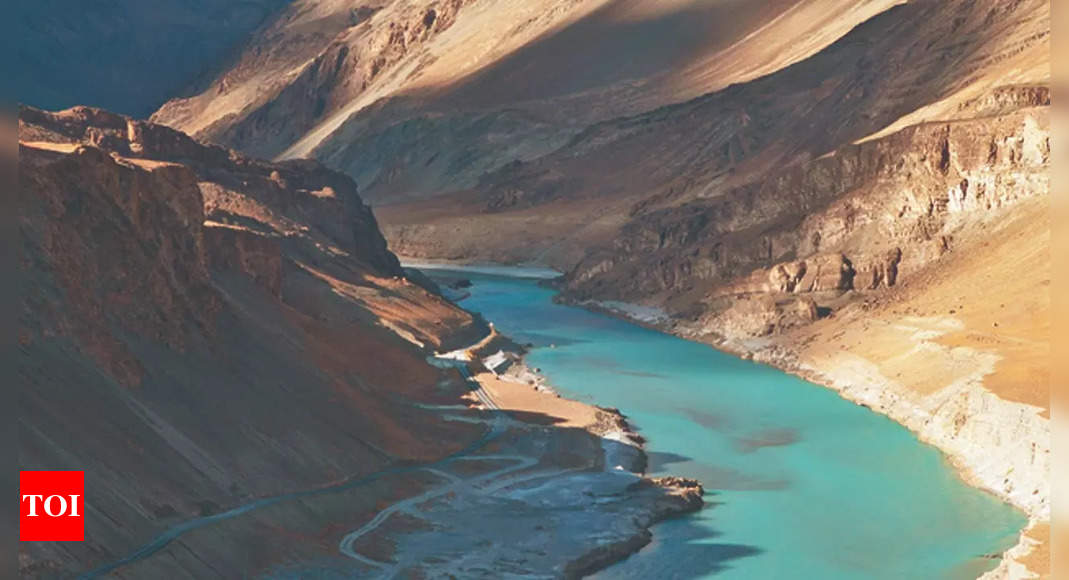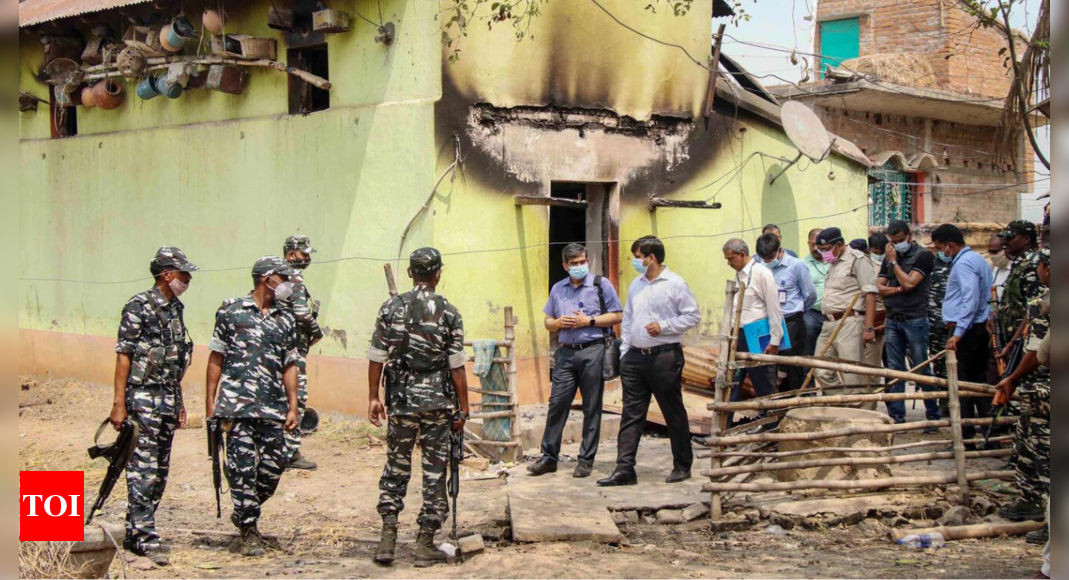[ad_1]
NEW DELHI: India has issued a notice to Pakistan over modification of the Indus Waters Treaty (IWT) of September 1960, government sources said on Friday. The notice for modification was sent as Pakistan’s actions have adversely impinged on the provisions of IWT.
According to the sources, the notice was sent on January 25 through respective commissioners for Indus waters.
“India has always been a steadfast supporter and a responsible partner in implementing the IWT in letter and spirit. However, Pakistan’s actions have adversely impinged on the provisions of IWT and their implementation, and forced India to issue an appropriate notice for modification of the pact,” said a source.
India and Pakistan signed the treaty in 1960 after nine years of negotiations, with the World Bank being a signatory of the pact. The treaty sets out a mechanism for cooperation and information exchange between the two countries regarding use of waters of a number of rivers.
According to sources, the objective of the notice for modification is to provide Pakistan with an opportunity to enter into inter-governmental negotiations within 90 days to rectify the material breach of the IWT. This process would also update IWT to incorporate the lessons learned over the last 62 years.
In 2015, Pakistan requested for appointment of a neutral expert to examine its technical objections to India’s Crazy and Rattle Hydro Electric Projects (HEPs).
In 2016, Pakistan unilaterally retracted this request and proposed that a Court of Arbitration adjudicate on its objections, the sources said.
‘They said this unilateral action by Pakistan is in contravention of the graded mechanism of dispute settlement envisaged by Article IX of the IWT.
Accordingly, India made a separate request for the matter to be referred to a neutral expert.
“The initiation of two simultaneous processes on the same questions and the potential of their inconsistent or contradictory outcomes creates an unprecedented and legally untenable situation, which risks endangering the IWT itself,” the source said.
“The World Bank acknowledged this itself in 2016, and took a decision to ‘pause’ the initiation of two parallel processes and request India and Pakistan to seek an amicable way out,” it said.
The sources said that despite repeated efforts by India to find a mutually agreeable way forward, Pakistan refused to discuss the issue during the five meetings of the Permanent Indus Commission from 2017 to 2022
At Pakistan’s continuing insistence, the World Bank has recently initiated actions on both the neutral expert and Court of Arbitration processes, they said.
The sources added that such parallel consideration of the same issues is not covered under any provision of IWT.
“Faced with such violation of IWT provisions, India has been compelled to issue notice of modification,” the source cited above said.
According to the sources, the notice was sent on January 25 through respective commissioners for Indus waters.
“India has always been a steadfast supporter and a responsible partner in implementing the IWT in letter and spirit. However, Pakistan’s actions have adversely impinged on the provisions of IWT and their implementation, and forced India to issue an appropriate notice for modification of the pact,” said a source.
India and Pakistan signed the treaty in 1960 after nine years of negotiations, with the World Bank being a signatory of the pact. The treaty sets out a mechanism for cooperation and information exchange between the two countries regarding use of waters of a number of rivers.
According to sources, the objective of the notice for modification is to provide Pakistan with an opportunity to enter into inter-governmental negotiations within 90 days to rectify the material breach of the IWT. This process would also update IWT to incorporate the lessons learned over the last 62 years.
In 2015, Pakistan requested for appointment of a neutral expert to examine its technical objections to India’s Crazy and Rattle Hydro Electric Projects (HEPs).
In 2016, Pakistan unilaterally retracted this request and proposed that a Court of Arbitration adjudicate on its objections, the sources said.
‘They said this unilateral action by Pakistan is in contravention of the graded mechanism of dispute settlement envisaged by Article IX of the IWT.
Accordingly, India made a separate request for the matter to be referred to a neutral expert.
“The initiation of two simultaneous processes on the same questions and the potential of their inconsistent or contradictory outcomes creates an unprecedented and legally untenable situation, which risks endangering the IWT itself,” the source said.
“The World Bank acknowledged this itself in 2016, and took a decision to ‘pause’ the initiation of two parallel processes and request India and Pakistan to seek an amicable way out,” it said.
The sources said that despite repeated efforts by India to find a mutually agreeable way forward, Pakistan refused to discuss the issue during the five meetings of the Permanent Indus Commission from 2017 to 2022
At Pakistan’s continuing insistence, the World Bank has recently initiated actions on both the neutral expert and Court of Arbitration processes, they said.
The sources added that such parallel consideration of the same issues is not covered under any provision of IWT.
“Faced with such violation of IWT provisions, India has been compelled to issue notice of modification,” the source cited above said.
[ad_2]
Source link





